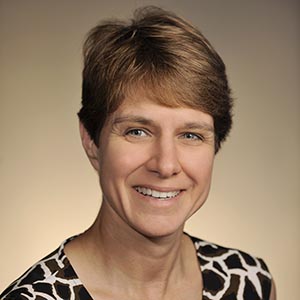By Penni Black, PhD
I often hear my colleagues say to their young kids “use your words”. Most of the time there has been a meltdown or disagreement that necessitates having the child express exactly what is troubling them so someone can fix it. I’ve found myself using the same expression while standing in a lecture hall in front of 140 pharmacy students: “use your words!”. To provide a bit of context, I teach in basic science, foundational courses early in the curriculum. I have increasingly observed that students struggle with defining and using discipline-specific vocabulary. If this is really a problem of our students not having the appropriate experience with necessary vocabulary, then we must address these deficiencies.
Developing PhD students’ vocabulary
I’ve investigated the literature, popular press, and other sources to get a sense of whether I’m being grouchy as I approach mid-career status or whether others have observed similar issues.1-3 Importantly, in our institution as in others, PhD students enter through the same front door as pharmacy students. They climb the steps and immerse themselves in a few classes and initial laboratory experiences. Importantly, each of the graduate students entered the program with an undergraduate degree and has been the beneficiary of regular mentoring, usually one on one. We send them to journal clubs and seminars where they are regularly challenged by both the scientific method and the vocabulary that goes along with it, and we expect them to become proficient using essentially a self-directed learning process. Graduate students are evaluated for competency at the qualifying and defense exams as it relates to their specific project. Assessment of progress in the graduate program is less of a series of quantifiable values, and more of an intuitive feel for competency by the mentor and dissertation committee. So, when a graduate student seems ill-prepared for the discipline-specific needs of the program, whether that’s vocabulary or hands-on science, we send them back to improve by immersing themselves in the literature and lab.
Are PharmD students vocabulary-challenged?
Now, let’s discuss the PharmD students. Not all of our incoming students possess a four-year degree. Therefore, many students may not have had the opportunity for additional practice with vocabulary in upper-level science courses. Certainly, within the PharmD program, they receive less one-on-one mentoring so it is possible to overlook a lack of certain discipline-specific knowledge, especially vocabulary. So, perhaps, the observations I’ve made in a class of 140 are “one-offs”, and the majority are competent in the vocabulary. However, I suspect most students could use some additional prodding to identify and define the words they do not recognize or do not fully understand the contextual definition. I also believe that improving discipline-specific vocabulary of the average student may subsequently translate to improved ability to understand the concepts to which the terms apply. The students may then logically work through test questions and make more reasonable answer choices, leading to improved scores. My student evaluations often contain phrases that implore me to “teach me to think like you do”. To do that, I provided opportunities for self-remediation by pointing out words that they might stumble over.
What happened when I asked what a word meant
I took a stab this fall during a lecture by pausing on a word that might be misunderstood. The first word I chose was “sclerosis” as I began a series of lectures on multiple sclerosis. I asked the class what “sclerosis” means. After receiving several answers that were not correct, I encouraged them to look it up. I then got the correct answer: hardening of tissue. I went on to ask why this was important in the pathogenesis of this disease. Slowly, they began to work through the question as a class and generated the correct response. It occurred to me that had I not stopped, many would have missed the importance of defining this word. Compared to my graduate students with whom I interact regularly and often send back to the bench or the computer to self-remediate, we do not often have or take the same opportunities with our PharmD students. While it is unrealistic for me to meet each student for individual time to work on vocabulary, taking the time in class to focus on a word or term that I think comes second-nature may pay huge dividends for many students. I suspect there are other views and ideas that relate to my observations in the classroom, but we should also consider how we would mentor a student during clinical experiential rotations when a student utilizes an incorrect term while dealing directly with patients and/or other health care professionals. Are there steps you could take to address this issue within your individual practice and/or teaching?
References
- Hole A. Developing Students’ Discipline-Specific Vocabulary. http://blogs.sussex.ac.uk/tel/2017/03/14/learning-to-speak-a-discipline/. Published March 14, 2017. Accessed January 2, 2018.
- Weimer M. A New Way to Help Students Learn Course Vocabulary. https://www.facultyfocus.com/articles/effective-teaching-strategies/a-new-way-to-help-students-learn-course-vocabulary/. Published November 13, 2012. Accessed January 2, 2018.
- Fusaro M. Building Vocabulary to Improve Reading. https://www.gse.harvard.edu/news/uk/09/05/building-vocabulary-improve-reading. Published May 26, 2009. Accessed January 2, 2018.

Esther Black is an Associate Professor at the University of Kentucky, College of Pharmacy, Department of Pharmaceutical Sciences. My educational scholarship interests include improving student success in foundational science courses and integrating common reading experiences in core curricula. In my free time, I enjoy many forms of exercise and watching college sports.
Pulses is a scholarly blog supported by a team of pharmacy education scholars.
